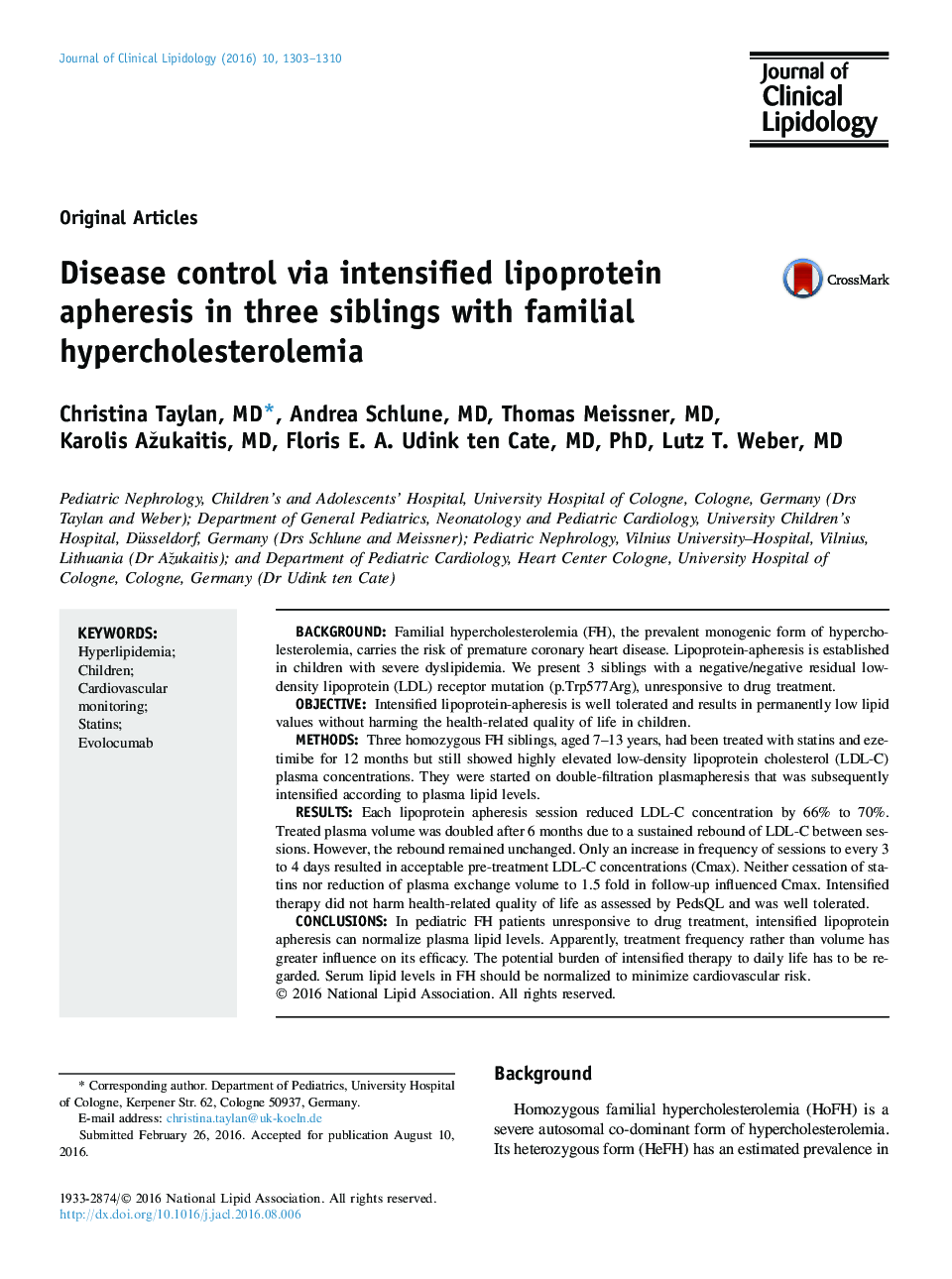| کد مقاله | کد نشریه | سال انتشار | مقاله انگلیسی | نسخه تمام متن |
|---|---|---|---|---|
| 5985107 | 1578169 | 2016 | 8 صفحه PDF | دانلود رایگان |
- Certain forms of homozygous hypercholesterolemia do not respond to standard drugs.
- Intensified lipid apheresis controls hypercholesterolemia in these children.
- Treatment frequency rather than exchange volume prevents rebound between sessions.
- No change of preexisting findings in cardiovascular follow up over 18Â months.
- Quality of life remained good under intensified intervention.
BackgroundFamilial hypercholesterolemia (FH), the prevalent monogenic form of hypercholesterolemia, carries the risk of premature coronary heart disease. Lipoprotein-apheresis is established in children with severe dyslipidemia. We present 3 siblings with a negative/negative residual low-density lipoprotein (LDL) receptor mutation (p.Trp577Arg), unresponsive to drug treatment.ObjectiveIntensified lipoprotein-apheresis is well tolerated and results in permanently low lipid values without harming the health-related quality of life in children.MethodsThree homozygous FH siblings, aged 7-13Â years, had been treated with statins and ezetimibe for 12Â months but still showed highly elevated low-density lipoprotein cholesterol (LDL-C) plasma concentrations. They were started on double-filtration plasmapheresis that was subsequently intensified according to plasma lipid levels.ResultsEach lipoprotein apheresis session reduced LDL-C concentration by 66% to 70%. Treated plasma volume was doubled after 6Â months due to a sustained rebound of LDL-C between sessions. However, the rebound remained unchanged. Only an increase in frequency of sessions to every 3 to 4Â days resulted in acceptable pre-treatment LDL-C concentrations (Cmax). Neither cessation of statins nor reduction of plasma exchange volume to 1.5 fold in follow-up influenced Cmax. Intensified therapy did not harm health-related quality of life as assessed by PedsQL and was well tolerated.ConclusionsIn pediatric FH patients unresponsive to drug treatment, intensified lipoprotein apheresis can normalize plasma lipid levels. Apparently, treatment frequency rather than volume has greater influence on its efficacy. The potential burden of intensified therapy to daily life has to be regarded. Serum lipid levels in FH should be normalized to minimize cardiovascular risk.
Journal: Journal of Clinical Lipidology - Volume 10, Issue 6, NovemberâDecember 2016, Pages 1303-1310
